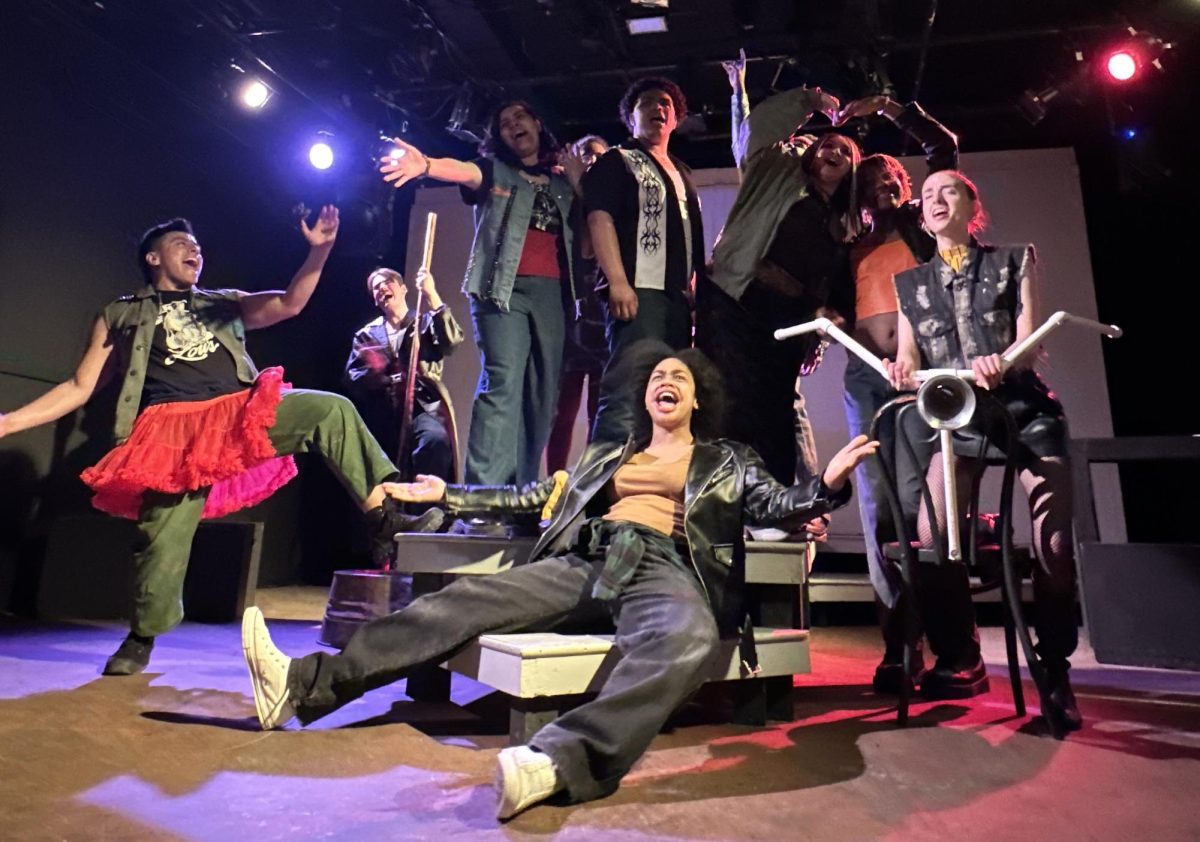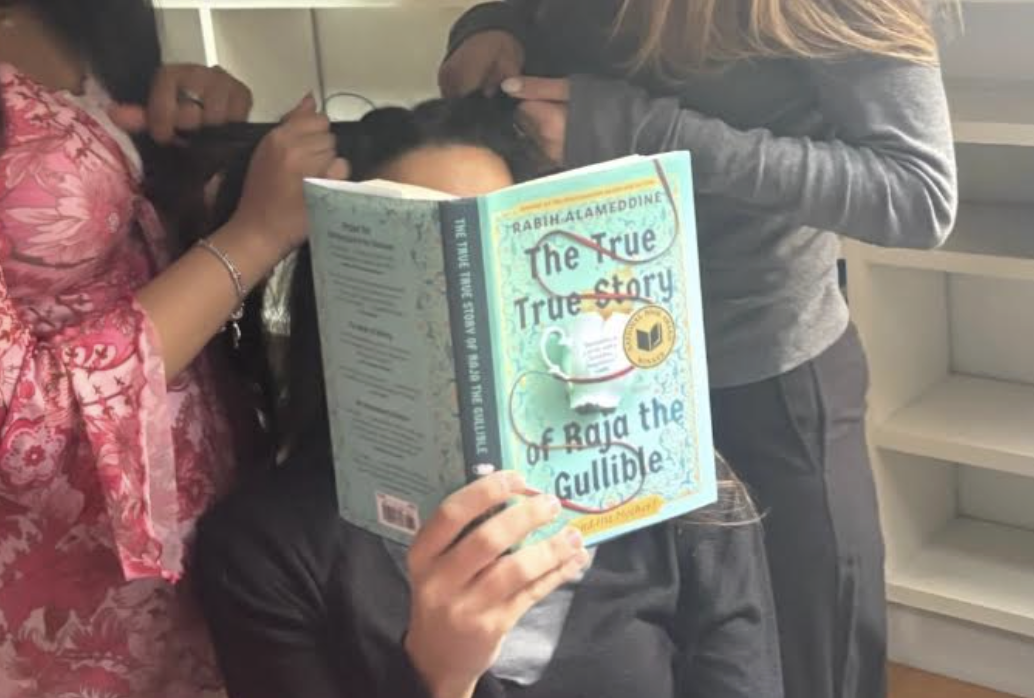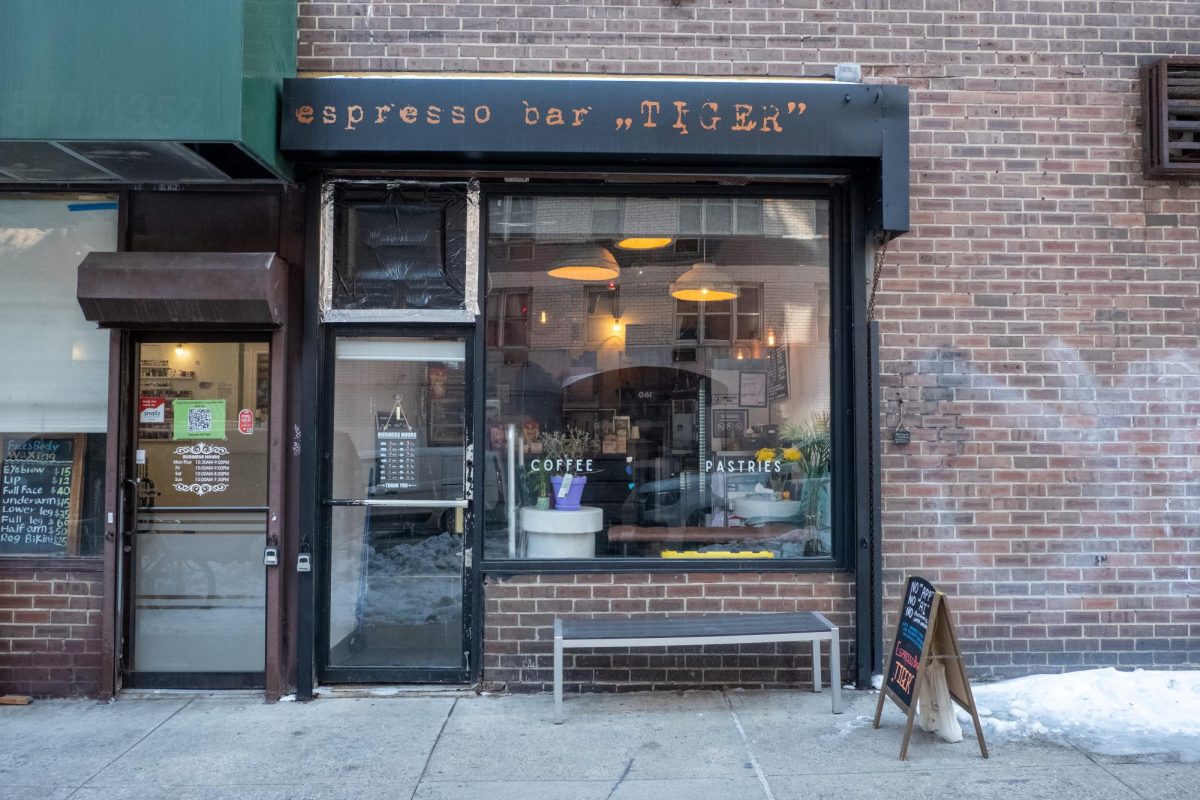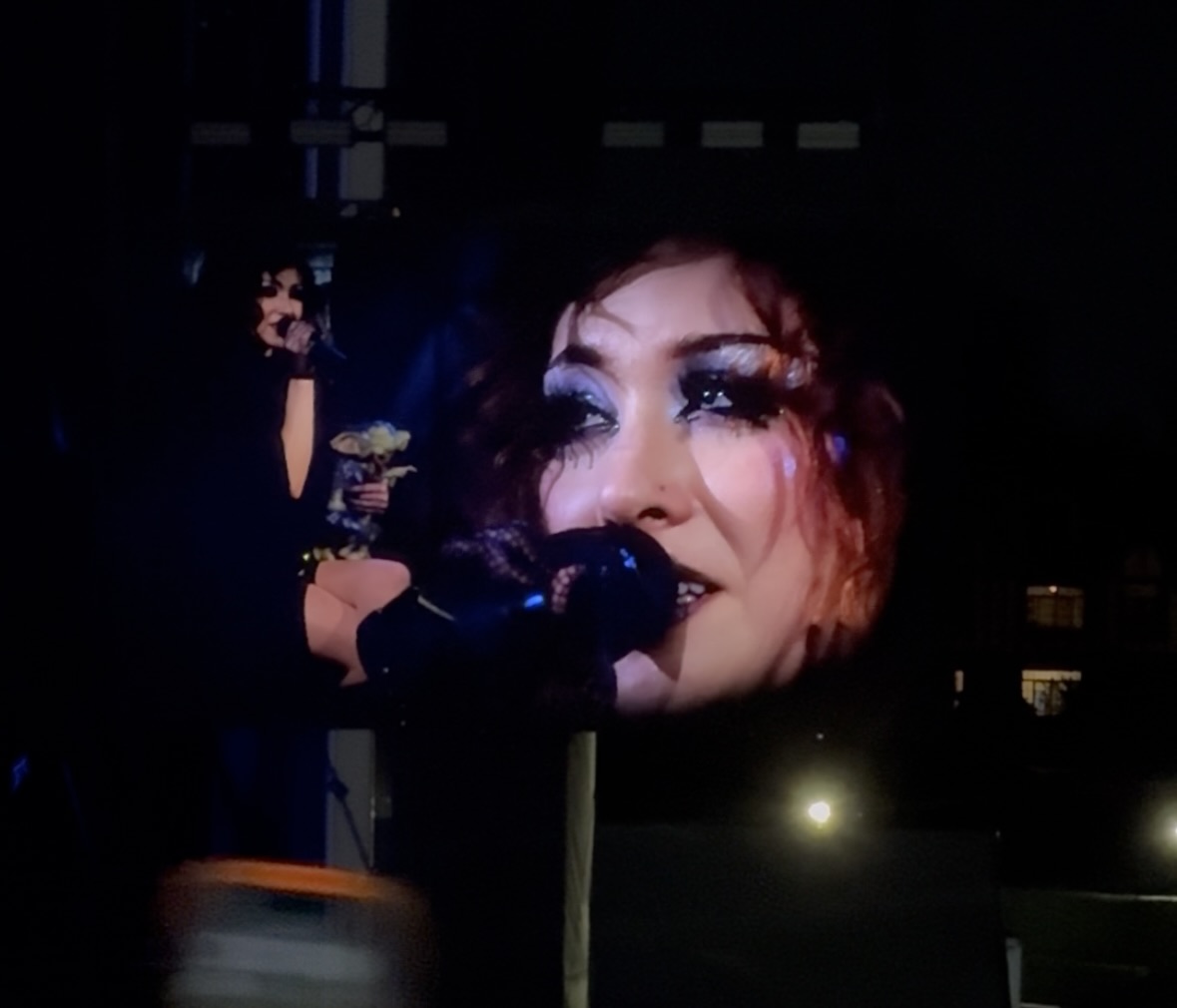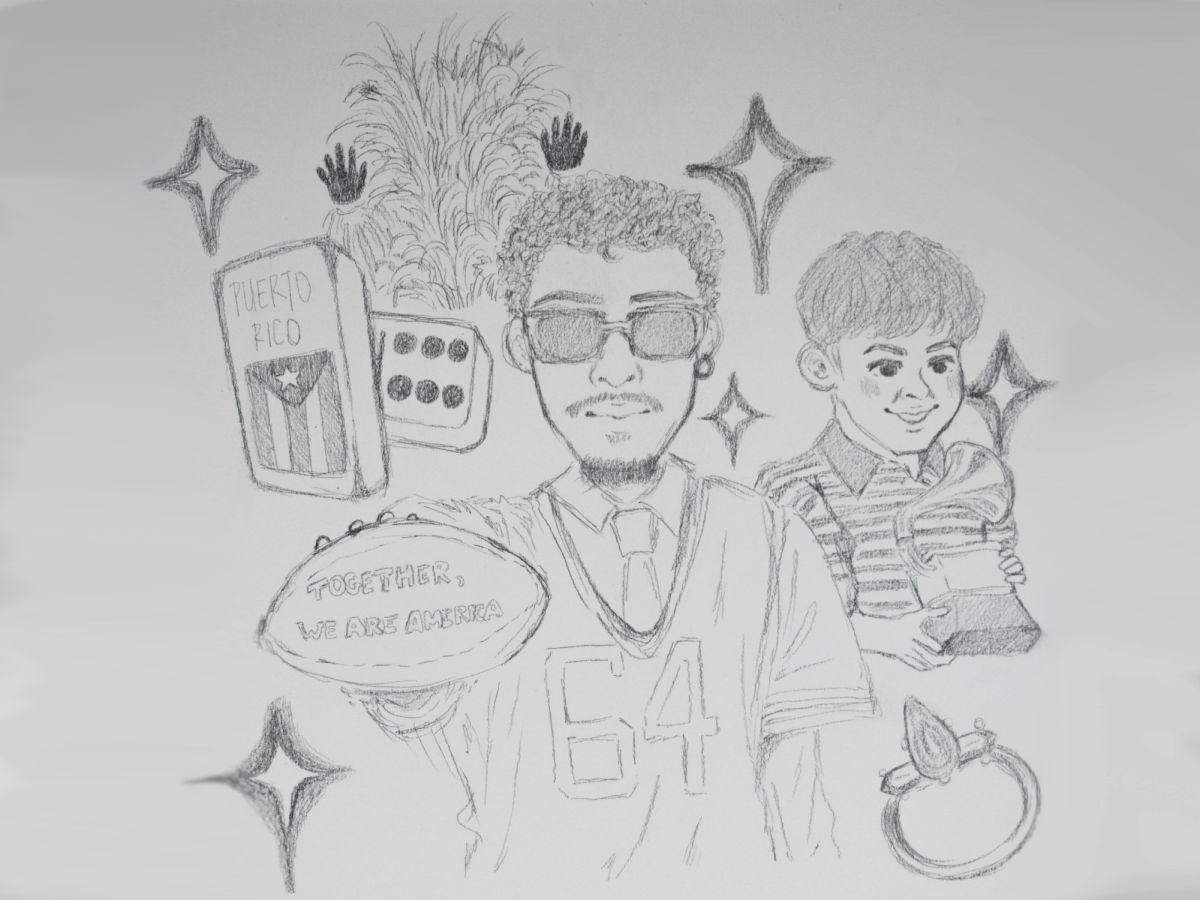“We Will Rock You,” a futuristic rock musical directed by theatrical professional Zeynep Akça, shook the stage of the Bernie West Theater at Baruch College during its closing night on April 26.
Filled with jokes and scripted references to popular rock and pop songs, the production combined the renowned music by Queen with the ideas of the cyber age, tyranny, rebellion, teenage love and the lack of interpersonal connections resulting from technology addiction.
The leading roles of Galileo, Figaro, and Scaramouche, the outcasts of the virtual world who were destined to revive rock ‘n’ roll, were portrayed by performers and vocalists Sebastian Garcia-Rivera and Ciara Ailani Velez, respectively.
In “We Will Rock You,” the artificial reality is controlled by Globalsoft, an evil metaverse corporation that strives to demolish the existence of live music, and its boss, Killer Queen, was acted by entertainer, makeup artist, and Baruch alumnus Jasmine Belis.
To end the totalitarian era of Globalsoft, Galileo and Scaramouche had to decipher the message of a worn-out Queen cassette and find the only remaining musical instrument with the help of the Bohemians, a secret community of rebellious rock music fans.
All songs in the Baruch production were supported and performed by the backstage musical band, composed of guitarist Ivan, drummer Mely Ramos, and pianist Max Bennett-Parker, who was also the musical director of the show.
The musical incorporated various video elements, including a series of pre-recorded YouTube videos as a prelude to the performances, an illusion of a functional screen on a hand-made TV set, and a distorted clip of the song “Bohemian Rhapsody” by Queen.
Additionally, “We Will Rock You” periodically integrated a magnified real-time video projection of the scenes that were recorded by the actors themselves with their phones. After the end of each performance, the audience had a chance to meet and talk to their favorite cast members outside of the theater venue.
Many “We Will Rock You” performers believe it is particularly important to attend theatrical shows during times of intense digitalization and increasing mental distance among people.
“Theater is a bridge between story and real life, and that bridge allows us to suspend our realities and enjoy ourselves, and also still maintain access and understanding of human emotion and connection,” Rachelle Hernández, an ensemble member and a Baruch alumnus, said.
Paz Morán, an ensemble member, thinks the significance of theatrical shows lies within their ephemerality, irreversible nature, and the discussions they provoke afterward.
“And you get to be a part of that moment,” Moran said.
In an interview with The Ticker, Belis highlighted the ability of theater to build connections and bring awareness to social issues in a “light-hearted” but still “very impactful” way.
“This is life,” Belis said. “Get out there and live your life; say hi to someone you never said hi to before; don’t let the digital life become our future, our destiny, because we are so much more complicated than that.”
Furthermore, Belis stressed the importance of Baruch offering more substantial and consistent support to the departmental theatrical productions. This would allow the shows at Baruch to have access to more resources and attract larger audiences, the actress said.
Typically, the tickets at the Bernie West Theater cost $16 for general admission and $10 for students with a valid student ID.
Moreover, students can take advantage of other discounted ticket programs, including the TDF Broadway Passport Series, TodayTix, and Manhattan Theatre Club’s “30 Under 35” Program and others.
Students interested in theater can join the recently established Baruch Theater Club that offers dance classes and acting workshops.


